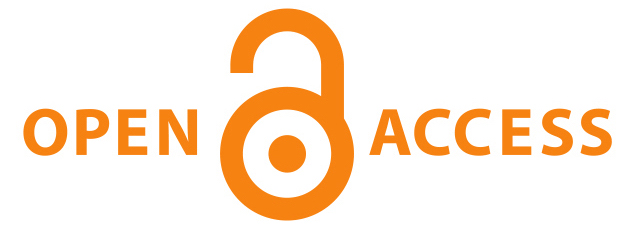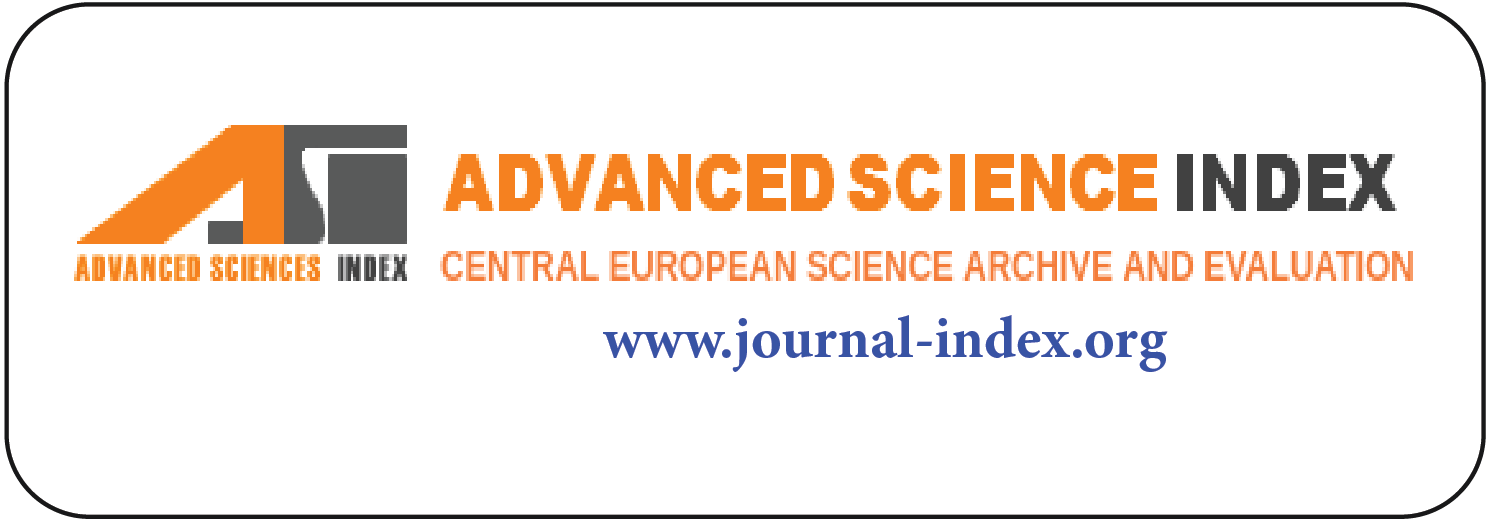Understanding Social-Emotional Development through Music: A Qualitative Approach to Autism Support in China
DOI:
https://doi.org/10.56868/jadhur.v4i2.266Keywords:
Music Therapy, Social-Emotional Development, Cultural Sensitivity, Non-Verbal Communication, Emotional Regulation, Social BondingAbstract
This study investigated how music therapy supports social-emotional development in children with autism spectrum disorder (ASD) within China’s cultural context, addressing three objectives: (1) examining emotional regulation through music, (2) assessing its role in social bonding, and (3) exploring cultural influences on therapeutic adoption. Using an interpretative phenomenological approach (IPA), we conducted in-depth interviews with 20 caregivers and therapists, analyzing data through thematic coding and iterative interpretation. Findings revealed that music bridges communication gaps for nonverbal children, with rhythmic structures enhancing emotional recognition particularly valuable in China’s indirect emotional expression norms. While group music activities improved social reciprocity through synchronized engagement (drumming), sensory differences necessitated individualized adaptations. Culturally, music therapy’s non-stigmatizing nature increased family acceptance, though Confucian avoidance of disability discourse sometimes limited families to music-based interventions alone. The study concludes that music therapy’s effectiveness in China hinges on harmonizing cultural preferences (collective harmony) with neurodiversity-aware personalization. Key implications include: (1) developing culturally adapted music protocols that leverage rhythmic synchrony for social goals, and (2) addressing stigma through community education to prevent therapeutic monocultures. These insights advance global autism research by demonstrating how cultural values mediate evidence-based interventions’ implementation and efficacy.
References
Applewhite, B., Cankaya, Z., Heiderscheit, A., & Himmerich, H. (2022). A systematic review of scientific studies on the effects of music in people with or at risk for autism spectrum disorder. International journal of environmental research and public health, 19(9), 5150.
Arroyo, A. (2024). Caregiver Perceptions of Social-Emotional Development in Young Children (Doctoral dissertation, University of Colorado at Denver).
Bakan, M. B., & Gibson, G. (2023). Music, Autism, and Neurodiversity in Re-presentational Perspective. Medical Humanities, Cultural Humility, and Social Justice, 22.
Bamicha, V., & Drigas, A. (2022). ToM & ASD: The interconnection of Theory of Mind with the social-emotional, cognitive development of children with Autism Spectrum Disorder. The use of ICTs as an alternative form of intervention in ASD. Technium Social Sciences Journal, 33, 42-72.
Bell-Smith, J. (2022). The Assessment of Social-Emotional Growth across Cultures: A Pilot Study for Using the Greenspan Social-Emotional Growth Chart with an Arabic-Speaking Population. Fielding Graduate University.
Boal-Palheiros, G., & Ilari, B. (2023). Music, drama, and social development in Portuguese children. Frontiers in Psychology, 14, 1093832.
Brocki, J. M., & Wearden, A. J. (2006). A critical evaluation of the use of interpretative phenomenological analysis (IPA) in health psychology. Psychology and health, 21(1), 87-108.
Çenberci, S., & Tufan, E. (2023). Effect of music education based on Edwin E. Gordon’s theory on children’s developmental music aptitude and social emotional learning Skills. International Journal of Music Education, 02557614231196973.
Eddy, M., Blatt-Gross, C., Edgar, S. N., Gohr, A., Halverson, E., Humphreys, K., & Smolin, L. (2021). Local-level implementation of Social Emotional Learning in arts education: Moving the heart through the arts. Arts Education Policy Review, 122(3), 193-204.
Edgar, S. N., D’Ambrosio, K. I., & Hackl-Blumstein, E. (2023). Compassion and care through musical social emotional learning. The Oxford handbook of care in music education, 192.
Farrington, C., & Shewfelt, S. (2020). How Arts Education Supports Social-Emotional Development: A Theory of Action. State Education Standard, 20(1), 31-35.
Feng, X. W., Hadizadeh, M., & Cheong, J. P. G. (2024). The necessity and challenge of family-school cooperation in developing fundamental motor skills for children with autism: the perspective of Chinese teachers and parents. International Journal of Developmental Disabilities, 1-13.
Gaudette-Leblanc, A., Boucher, H., Bédard-Bruyère, F., Pearson, J., Bolduc, J., & Tarabulsy, G. M. (2021). Participation in an early childhood music programme and socioemotional development: A meta-analysis. International Journal of Music in Early Childhood, 16(2), 131-153.
Han, E., Tan, M. M. J., Crane, L., & Legido-Quigley, H. (2021). A qualitative study of autism services and supports in Singapore: Perspectives of service providers, autistic adults and caregivers. Autism, 25(8), 2279-2290.
He, Y., Wong, A., Zhang, Y., Lin, J., Li, H., Zhao, B., ... & Liu, G. (2024). Effects of Mozart–Orff parent–child music therapy among mothers and their preschool children with autism spectrum disorder: A mixed-methods randomised controlled trial. BMC pediatrics, 24(1), 665.
Hicks, O. L. (2024). Teachers' Methods in Supporting Preschooler's Social-Emotional Development During a Pandemic: An Exploratory Case Study (Doctoral dissertation, American College of Education).
Ho, L. L. K., Li, W. H. C., Cheung, A. T., Xia, W., Ho, K. Y., & Chung, J. O. K. (2020). Low-income parents’ perceptions of the importance of a musical training programme for their children: a qualitative study. BMC public health, 20, 1-8.
Jietao, L. I. A. N. (2022). The Social-emotional Development of Chinese Children in the Structure of the Child-rearing Environment and the Child-rearing Relationship.
Khoso, A. K., Darazi, M. A., Mahesar, K. A., Memon, M. A., & Nawaz, F. (2022). The impact of ESL teachers' emotional intelligence on ESL Students academic engagement, reading and writing proficiency: mediating role of ESL student’s motivation. Int. J. Early Childhood Spec. Educ, 14, 3267-3280.
Khoso, A. K., Honggang, W., & Afzal, M. (2024). Unraveling the impact of Facebook addiction on EFL students: a dual lens on self-esteem and academic achievement. Russian Law Journal, 12(2), 1167-1187.
Koç, N., & Sungurtekin, Ş. (2023). Promoting Preschool Children's Social-Emotional Learning Skills Through Creative Drama Integrated Music Activities. International Online Journal of Primary Education, 12(3), 210-227.
Larkin, M., Watts, S., & Clifton, E. (2006). Giving voice and making sense in interpretative phenomenological analysis. Qualitative research in psychology, 3(2), 102-120.
Lian, X., Cheong Hin Hong, W., Xu, X., Kimberly, K. Z., & Zhang, Y. (2024). The Construction of Learning Support Parameters for Adults with Autism. International Journal of Disability, Development and Education, 1-22.
Liang, Y., Ju, F., Hao, Y., Yang, J., & Liu, Y. (2024). Teachers’ perception on physical activity promotion in kindergarten children in China: a qualitative study connecting social-ecological model. BMC Public Health, 24(1), 2190.
Lici, E., Avdulaj, E., Zhapaj, A., & Lamaj, P. D. I. (2024). The Effect Of Music Education On The Development Of Students With Autism Spectrum Disorders And Intellectual Disabilities: A Systematic Review Of The Literature. Educational Administration: Theory and Practice, 30(5), 2229-2238.
Lloyd, M. A. (2021). Social Emotional Learning in the Elementary General Music Classroom: Exploring Instructional Strategies and Approaches (Doctoral dissertation, University of Florida).
Low, M. Y., McFerran, K. S., Viega, M., Carroll-Scott, A., McGhee Hassrick, E., & Bradt, J. (2023). Exploring the lived experiences of young autistic adults in Nordoff-Robbins music therapy: An interpretative phenomenological analysis. Nordic Journal of Music Therapy, 32(4), 341-364.
Luo, H., Zuo, M., & Wang, J. (2022). Promise and reality: Using ICTs to bridge China’s rural–urban divide in education. Educational technology research and development, 70(3), 1125-1147.
Luo, W., Berson, I. R., Berson, M. J., & Han, S. (2022). Young chinese children's remote peer interactions and social competence development during the COVID-19 pandemic. Journal of Research on Technology in Education, 54(sup1), S48-S64.
Martikainen, S., Kalland, M., Linnavalli, T., Kostilainen, K., Aittokoski, M., Reunamo, J., ... & Tervaniemi, M. (2024). Supporting social-emotional development in early childhood education and care–a randomized parallel group trial evaluating the impact of two different interventions. Scandinavian Journal of Educational Research, 68(5), 1069-1087.
Martí-Vilar, M., Villalonga-Aragón, M., González-Sala, F., Hidalgo-Fuentes, S., Merino-Soto, C., & Toledano-Toledano, F. (2023). Promoting prosociality and health through musical interventions with groups at risk of social exclusion: a systematic review. Sustainability, 15(23), 16334.
Moo, J. T. N., & Ho, R. T. H. (2024). Family‐centered creative arts therapies for children with autism: A configurative systematic review. Family Relations.
Nguyen, T., Flaten, E., Trainor, L. J., & Novembre, G. (2023). Early social communication through music: State of the art and future perspectives. Developmental cognitive neuroscience, 63, 101279.
Perry, J. T. (2024). An Exploration Into The Social and Emotional Effects of K-12 Music Education (Doctoral dissertation, Liberty University).
Quigley, H., & MacDonald, R. (2022). A qualitative study of an online Makaton choir for individuals with learning difficulties. international journal of community music, 15(1), 65-94.
Rabinowitch, T. C., & Cirelli, L. (2023). The Social Origins of Music. The Oxford Handbook of Early Childhood Learning and Development in Music, 149.
Rajan, R. S., & Aker, M. (2024). The impact of an in-school dance program on at-risk preschoolers’ social-emotional development. Journal of Dance Education, 24(1), 1-8.
Rizzuto, T., Cordeiro, K., & Roda, A. (2024). The lost art: teachers’ perceptions of the connections between the arts and social-emotional learning. Arts Education Policy Review, 125(3), 150-162.
Roslan, S., binti Ma’rof, A. M., Zaremohzzabieh, Z., & Yin, Y. (2024). A Study On The Intervention Of Emotional Behavior Disorders In Chinese Children With Autism Through Family Games And Music. Educational Administration: Theory and Practice, 30(5), 239-244.
Shalit, L., Elefant, C., & Roginsky, E. (2024). Exploring music in the everyday lives of autistic women: An Interpretative Phenomenological Analysis. Nordic Journal of Music Therapy, 1-20.
Smith, J. A. (2010). Interpretative phenomenological analysis. Existential Analysis: Journal of the Society for Existential Analysis, 21(2).
Smith, J. A., & Osborn, M. (2015). History and theoretical background. Qualitative Psychology: A Practical Guide to Research Methods, 25-52.
Smith, J. A., Flowers, P., & Larkin, M. (2014). Analysis: Theory, Method and Research.
Strachan, M. K. (2021). Social and Emotional Learning in the Elementary Music Classroom: A Teacher’s Perspective.
Subramaniam, M. (2023). Social Emotional Learning (SEL) through the Arts Education: A Review of Research Literature. i-Manager's Journal on Educational Psychology, 16(4), 60.
Sularso, S., Putri, D. F., & Hanshi, B. (2024). Utilizing Music Learning as Emotional Intelligence Therapy for Students with Intellectual Disabilities in Special Elementary Schools. Virtuoso: Jurnal Pengkajian dan Penciptaan Musik, 7(1), 64-76.
Tan, R., & Perren, S. (2023). Promoting peer interactions in an inclusive preschool in China: what are teachers’ strategies?. International Journal of Inclusive Education, 27(9), 987-1003.
Voss, L., & Lin, M. L. (2024). Social Inclusion for a Child with Autism Spectrum Disorder: A Qualitative Case Study. Journal of Occupational Therapy, Schools, & Early Intervention, 1-21.
Wang, N., Ye, J. H., Gao, W., Lee, Y. S., Zeng, L., & Wang, L. (2024). What do they Need?—The academic counseling needs of students majoring in art and design in a higher vocational college in China. Heliyon, 10(6).
Wang, X., Cui, Y., & Fan, X. (2024). Growing through understanding and support: special boarding school teachers’ perspectives and experiences on sexual education for children with autism. International Journal of Developmental Disabilities, 1-14.
Wong, Y. C. (2024, November). What Happens When the Sun Comes Out? Reflection on Therapeutic Songwriting Practice with a Hong Kong Dyslexic Child. In Voices: A World Forum for Music Therapy (Vol. 24, No. 3).
Wu, Y. (2023). A Symphony of the Effects of Music Therapy on Children with Intellectual-Developmental Disabilities (Doctoral dissertation, University of Minnesota).
Xin, J., Hwa, P. C., Cooper, S., & Wing, C. K. (2023). Special Needs in Music Education from an Inclusive Perspective: A Bibliometric Review. Malaysian Journal of Social Sciences and Humanities (MJSSH), 8(8), e002481-e002481.
Yan, T., Hou, Y., Deng, M., & Han, F. (2023). The effect of family capital on psychological adjustment of Chinese children with autism spectrum disorder in the transition from kindergarten to primary school. International Journal of Developmental Disabilities, 1-10.
Yardley, L. (2000). Dilemmas in qualitative health research. Psychology and health, 15(2), 215-228.
Zhu, Y. (2021). Teachers' perspectives on improving educational inclusion through the performing arts: a qualitative study of primary schools in Shenzhen (Doctoral dissertation, University of Glasgow).
Downloads
Published
How to Cite
Issue
Section
License
Copyright (c) 2025 Yanfei Yang

This work is licensed under a Creative Commons Attribution 4.0 International License.
















